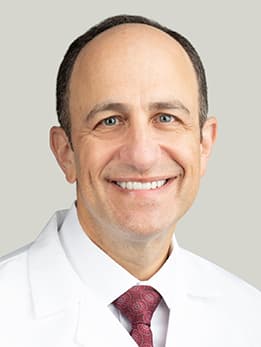Tracking real-time data to personalize treatment for IBD

"I always ask my patients simple questions when I give lectures," said David Rubin, MD. "Do you know where your Crohn's disease is located? Do you know what kind of behavior it exhibits, or when it tends to relapse? Some people can say yes, but surprisingly, many do not."
That uncertainty is one of the things leading Rubin and his colleagues at the University of Chicago Medicine to embark on a new series of research projects to help patients with Crohn's disease or ulcerative colitis better understand their disease. By systematically collecting data about symptoms, response to medications, activity, sleep, and diet, they want to give both patients and their physicians the ability to look for patterns that could lead to more effective treatment. These data, combined with research to build miniature models of intestines for testing in the lab, are building a foundation for an era of personalized medicine to treat inflammatory bowel disease (IBD).
In March, Takeda Pharmaceuticals announced a multi-year partnership with the University of Chicago Medicine and the Icahn School of Medicine at Mount Sinai in New York to further the study of IBD. Rubin, who is Section Chief of Gastroenterology, Hepatology and Nutrition at UChicago Medicine, said the grant is an opportunity for a new way of thinking about IBD.
"The Takeda grant is going to open the door for an entirely different way to manage our patients, and to provide them with not only real world, currently available information that will guide care, but also provide us with research that we think will improve the care of everybody," he said.
The real world data begins with a project called My UChicago IBD that will collect real-time activity data from patients so they can begin to understand the ebb and flow of their disease. Even when managed well, Crohn's disease and ulcerative colitis can flare up or cause symptoms at different times, triggered by diet, stress, and physical activity (or lack thereof). People may not think about how certain events are connected to their symptoms, or, for example, they may not realize that they get sick at the same time every year.
For the My UChicago IBD project, Rubin and his colleagues are partnering with a company called Litmus Health to collect physical activity data from Fitbit fitness trackers and add it to a database. The system will prompt patients to add information about how they feel at different times of the day, and will include mobile apps and a web portal where they can log in to track activity. Once enough data is collected, patterns will begin to emerge. Doctors can then use these patterns to predict trouble spots, unique to each patient's particular manifestation of the disease.
"There's never been a study like this in IBD where we collect this much data in real time, continuously," Rubin said. "It would be great if we could get ahead of the curve, because with chronic diseases like Crohn's and colitis, the idea is if we can predict if someone is going to have a problem, we can potentially intervene to prevent it."
A second area of research enabled by the Takeda grant, led by Eugene B. Chang, MD, the Martin Boyer Professor of Medicine in the Section of Gastroenterology, will take this individual approach one step further into the lab.Chang's work will create organoids, or miniature versions of the intestine, by taking stem cells out of tissue samples from a patient and growing them into the same type of cells that make up the intestinal lining. Then, they can conduct experiments on these organoids to see how they will respond to medications or interact with microbial organisms. Because they were created with the patient's own cells, these organoids will serve as a kind of stand in for the patients themselves.
"You can imagine in the future, we can determine before we give a patient any therapy if it's going to work and what we need to do to customize it," Rubin said. "It's pretty amazing."
Rubin says that what we think of as two diseases-Crohn's and ulcerative colitis-may actually be 50 or even 100 different diseases, with overlapping symptoms and presentations that depend on a patient's individual situation.
Ultimately, this new combination of activity tracking, individualized laboratory models, and customized treatments will give patients the power to better understand-and manage-their own unique version of IBD.
"We're going to give them the tools necessary to be empowered in their care," he said.

David T. Rubin, MD
Dr. Rubin specializes in the treatment of digestive diseases. His expertise includes inflammatory bowel diseases (Crohn’s disease and ulcerative colitis) and high-risk cancer syndromes.
See Dr. Rubin's physician bio